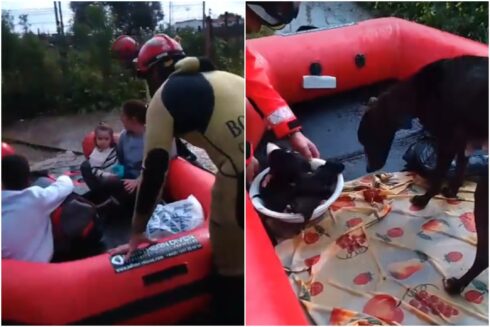EU ignored advice before three cubs and one adult die in national park
FOUR of the world’s most endangered feline have been found dead at the Doñana National Park despite the animals being part of an EU-funded scheme.
According to conservation group WWF, the Iberian lynx – three new born cubs and an adult male – died from starvation.
The adult – a male called Clavo which had been introduced to strengthen genetically the population in Doñana in 2006 – was found trapped without food and water inside an enclosure, built to house lynx before their release into the park.
Even though the cat was wearing a collar containing a radio tracking device, WWF officials claim its body had lain undiscovered for days.
Days later, the three cubs were found dead at Coto del Rey inside the park. An autopsy showed these had also died of hunger.
Now officials of the LIFE project – an European Union project to boost the cat’s population – has been slammed by local experts.
“I find it inexplicable how officials did not seek the advice of those who have been working with the animal for more than 20 years,” said Fernando Hiraldo, the director of the Biological Station of Doñana (BSD).
And this has been echoed by the man considered to be the world’s leading expert in the Iberian lynx.
Francisco Palomar, who is a researcher at the BSD, criticised the Junta de Andalucía, which has been charged with overseeing the programme.
“No co-ordination nor management seems to exist on behalf of the regional government. They have never involved the station in this project nor asked us questions about the lynx.”
Brussels has been asked to look into any charges of negligence while the public prosecutor in Huelva has also received a request to investigate.
“What sense is there in bringing the animal from the Sierra Morena if you are going to leave them to die in Doñana?
“These deaths highlight what a delicate situation the lynx population is in” Juan Carlos Olmo of WWF said.
With an estimated 150 in the wild, the animal is extinct from Portugal and is found in pockets of Spain, including Doñana and the Sierra Morena mountain range in northern Andalucía.
Very small colonies exist in Extremadura and Castilla La Mancha.
A spokesman for the Junta defended the running of the project and refuted claims of negligence.
“We received the final transmission from Clavo. This indicated that everything was normal and the animal was a distance from the enclosure. On April 2, we had the first indications that the animal had died inside this area.
“Our autopsy showed he possible perished on March 31,” José Guirado said.
Click here to read more News from The Olive Press.







In view of what has happened, and other reasons such as , illegal hunting, unchecked development around that area, it would be wiser to let them become extinct in Huelva.